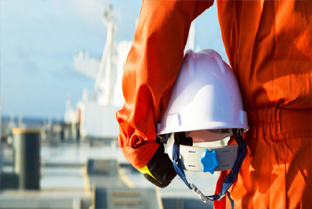
The International Convention for the Prevention of Pollution from Ships (MARPOL) is a crucial international agreement aimed at minimizing pollution of the oceans and seas, including oil, chemicals, sewage, garbage, and emissions from ships. Adopted by the International Maritime Organization (IMO) in 1973 and modified by the Protocol of 1978, MARPOL sets comprehensive regulations for preventing and controlling marine pollution. As a leading advocate for marine environmental protection, the Oceanic Momentum Group is committed to supporting and advancing the implementation of MARPOL globally.
MARPOL consists of six annexes, each addressing different sources and types of pollution:
Annex I: Prevention of Pollution by Oil
Annex I regulates the discharge of oil and oily water from ships, mandating the use of Oil Discharge Monitoring Equipment (ODME) and requiring ships to have Oil Pollution Emergency Plans (SOPEPs). It also sets strict guidelines for oil tankers, including the construction of double hulls to prevent oil spills.
Annex II: Control of Pollution by Noxious Liquid Substances
Annex III addresses the safe transportation of harmful substances in packaged form. It mandates proper packaging, labeling, documentation, and stowage to minimize the risk of pollution during transportation.
Annex III: Prevention of Pollution by Harmful Substances in Packaged Form
Annex III addresses the safe transportation of harmful substances in packaged form. It mandates proper packaging, labeling, documentation, and stowage to minimize the risk of pollution during transportation.
Annex IV: Prevention of Pollution by Sewage
Annex IV sets standards for the discharge of sewage from ships, requiring ships to have sewage treatment plants or holding tanks and to comply with strict discharge criteria to protect coastal and marine environments.
Annex V: Prevention of Pollution by Garbage
Annex V prohibits the discharge of all types of garbage into the sea, with limited exceptions. It requires ships to implement garbage management plans, maintain garbage record books, and adhere to strict disposal guidelines to prevent marine litter.
Annex VI: Prevention of Air Pollution from Ships
Annex VI regulates emissions from ships, including sulfur oxides (SOx), nitrogen oxides (NOx), and particulate matter. It sets limits on the sulfur content of fuel oil and establishes Emission Control Areas (ECAs) where even stricter standards apply. Annex VI also addresses the energy efficiency of ships, promoting the reduction of greenhouse gas emissions.
Since its adoption, MARPOL has significantly contributed to reducing marine pollution and protecting the marine environment. The implementation of MARPOL regulations has led to: